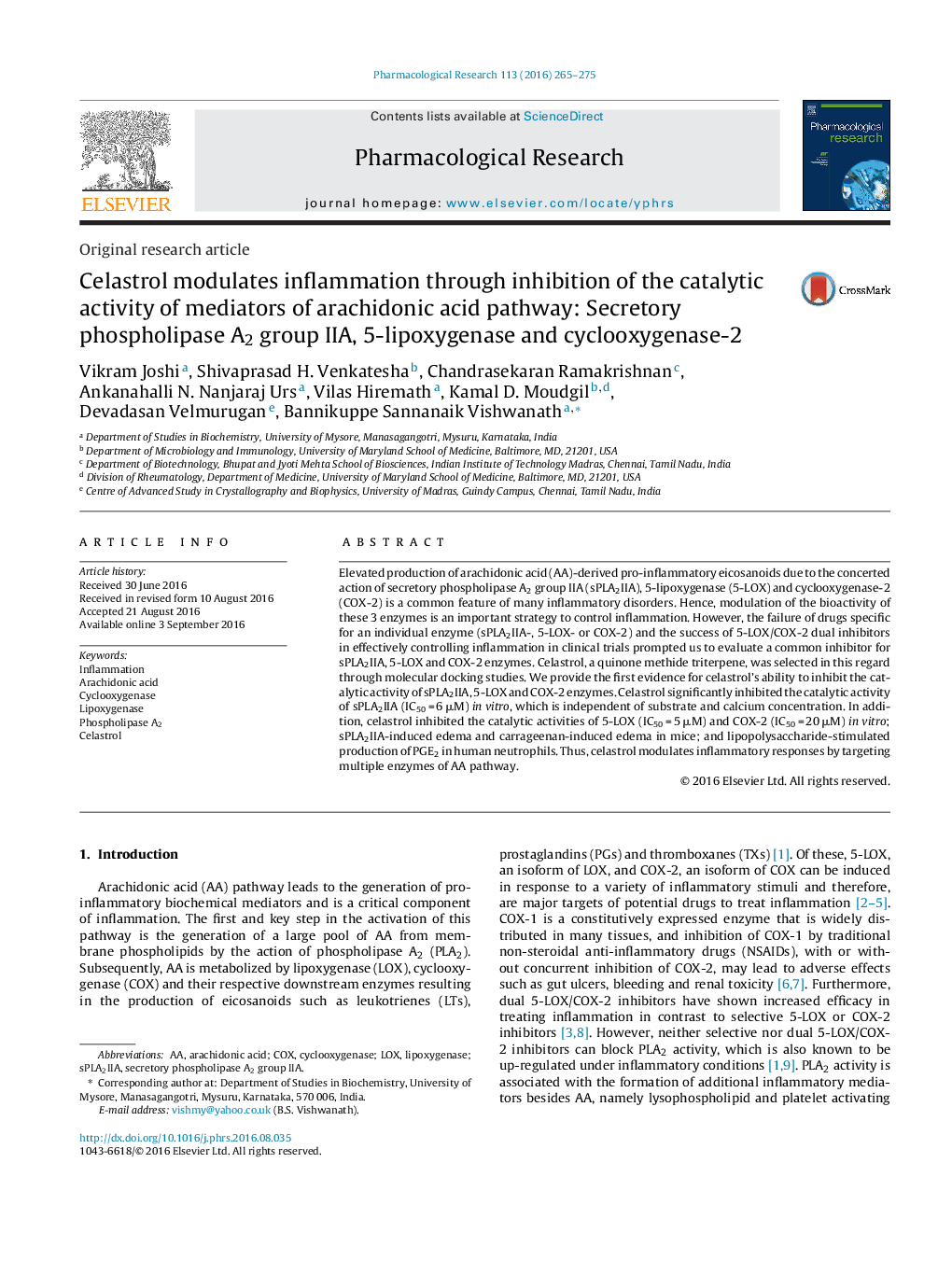| Article ID | Journal | Published Year | Pages | File Type |
|---|---|---|---|---|
| 5557639 | Pharmacological Research | 2016 | 11 Pages |
Elevated production of arachidonic acid (AA)-derived pro-inflammatory eicosanoids due to the concerted action of secretory phospholipase A2 group IIA (sPLA2IIA), 5-lipoxygenase (5-LOX) and cyclooxygenase-2 (COX-2) is a common feature of many inflammatory disorders. Hence, modulation of the bioactivity of these 3 enzymes is an important strategy to control inflammation. However, the failure of drugs specific for an individual enzyme (sPLA2IIA-, 5-LOX- or COX-2) and the success of 5-LOX/COX-2 dual inhibitors in effectively controlling inflammation in clinical trials prompted us to evaluate a common inhibitor for sPLA2IIA, 5-LOX and COX-2 enzymes. Celastrol, a quinone methide triterpene, was selected in this regard through molecular docking studies. We provide the first evidence for celastrol's ability to inhibit the catalytic activity of sPLA2IIA, 5-LOX and COX-2 enzymes. Celastrol significantly inhibited the catalytic activity of sPLA2IIA (IC50 = 6 μM) in vitro, which is independent of substrate and calcium concentration. In addition, celastrol inhibited the catalytic activities of 5-LOX (IC50 = 5 μM) and COX-2 (IC50 = 20 μM) in vitro; sPLA2IIA-induced edema and carrageenan-induced edema in mice; and lipopolysaccharide-stimulated production of PGE2 in human neutrophils. Thus, celastrol modulates inflammatory responses by targeting multiple enzymes of AA pathway.
Graphical abstractDownload high-res image (128KB)Download full-size image
